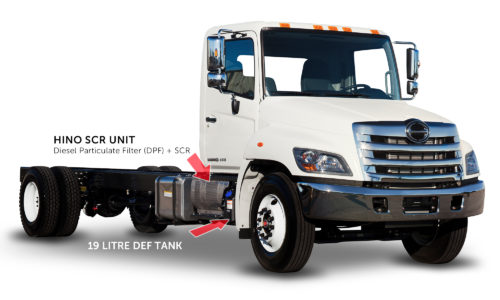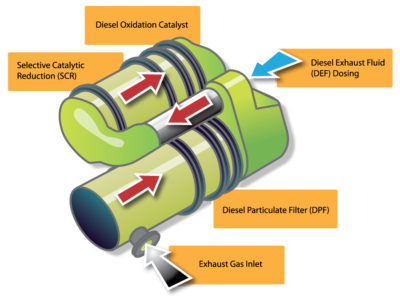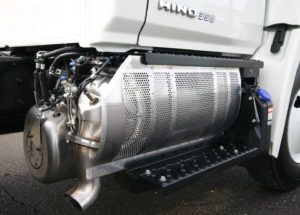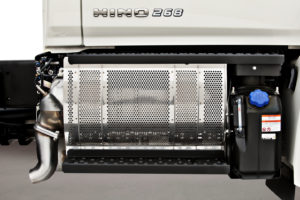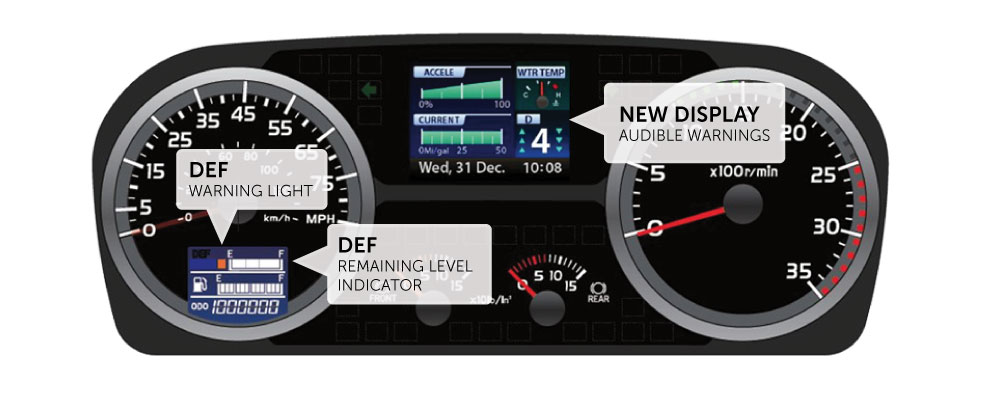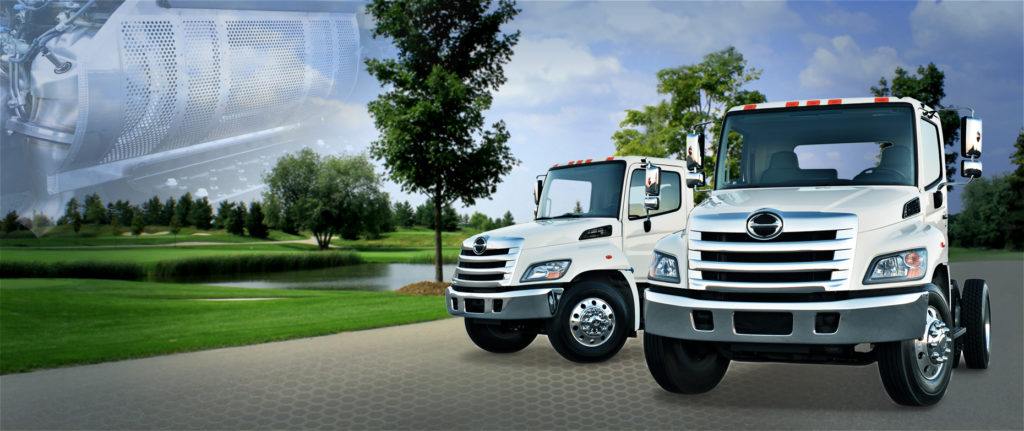The EPA 2010 emission regulations require more than an 80% reduction in Nitrogen Oxide (NOx) compared to the EPA 2007 emission levels. To meet these tough new regulations, Hino has selected the most environmentally friendly and reliable solution – Selective Catalytic Reduction (SCR).
SCR is a proven technology that is in use in Japan and Europe for truck, bus and industrial applications. It is the best solution to meet the EPA 2010 emission regulations.

